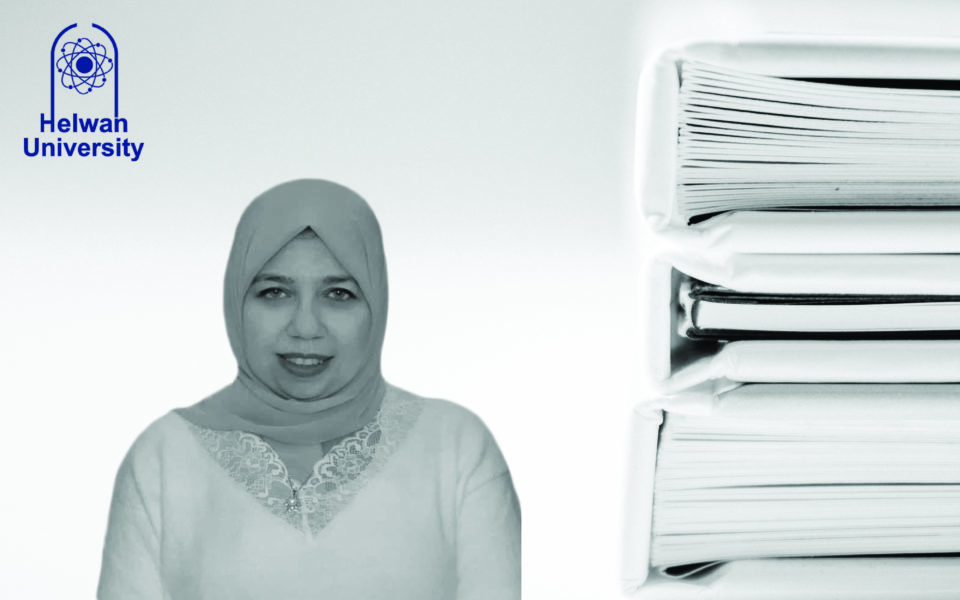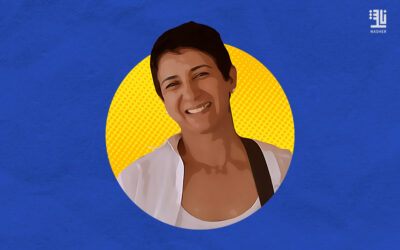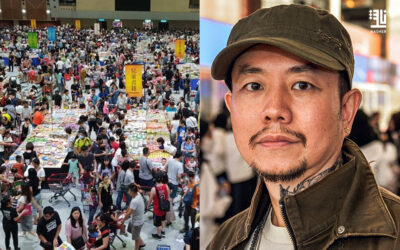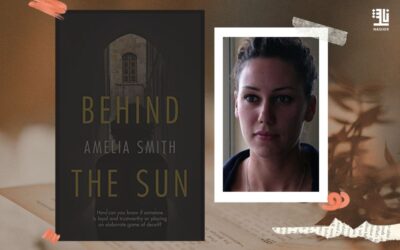In our second interview with translators heading for Frankfurt as part of the book fair’s Translators Programme we speak with Cairo’s Lobna Fouad whose love of words dates back to her childhood growing up next to Cairo’s National Library.
What are the challenges of translating from German into Arabic?
First, you have to choose well, a good text in content and language and it must be interesting for the Arab Reader too. Second, you have to convince your publisher and this becomes easier with time, because you win the trust of your publisher from a choice to another.
Translation itself is a complicated process but each book has a different type of challenge. Generally, German and Arabic are rich languages in flexion and derivation, which is the main content of Morphology, my specialization as a University Professor. But I face problems. For example: German uses English or French words and I have to decide if I shall translate them into Arabic or keep them as foreign words in the Arabic text.
Compound words are a problem too, because in German you find very long words, you have to understand the relation between them to be able to translate the compound word into Arabic. In German you have particles and Interjections, and it is sometimes very hard to find the equivalent in Arabic. One important point also, is which Arabic should you use, the standard Arabic or the local Arabic, and in which Dialect, especially in Dialogues. German uses, especially in modern literature, very long sentences, which you have to understand clearly to express them correctly in Arabic. Special terms in German in the field of technology for example have sometimes to be created in Arabic. It is also hard, when the writer is playing with words, or using metaphors and expressions, which can only be understood in German, like in a political context etc.
What are you working on at the moment?
Lately, I have been working on the translation of a non-fiction book, which is related to “human Rights” from an intellectual point of view. This book will be the first project of its publishing House in the field of translation. And the publisher is the one, who has chosen the book, which I really like and I think this book will have a very positive effect on the Arab society.
Which are your main areas of translation – fiction, non-fiction?
Actually both, but what I have translated until now is fiction, literary fiction. But my upcoming Project is a non-fiction book. I generally like to make an approach in different fields, I love change.
Can you tell me some authors you have translated and for which publishers?
I have translated Ilse Aichingers short story ‘Das Fenster-Theater’ and it was published 2014 in Ibda3 magazine. Then I translated Adelbert von Chamissos famous novel Peter Schlemihls wundersame Geschichte by the National Centre for Translation in Cairo 2018.
My last published translation was Eine Ahnung vom Anfang by Norbert Gstrein, published by Al-Kotob-Khan in Cairo. Another translation Pproject this year was in cooperation with the Rosa Luxemburg Association. I translated a documentary film about the life of this great woman into Arabic.
What are the issues facing translators in Cairo?
Well, the main issue is how to make good contacts with publishers, then how to choose a good book to translate for the Arab world. Many German books are good, but not necessarily good for the Arab reader, and of course the financial issue is important too. But for the German language we have the support of the Goethe Institute, which I thank for its great effort in financing translation through a special programme.
What do translators talk about when they meet up?
They talk about the new upcoming books, about means of financing translations and of course about the rate of their payment.
Do you think the work of translators is being recognised enough?
Yes, I had the pleasure to be recognized from my first publication, which was supported by the famous, Egyptian poet Prof. Hasan Teleb, who helped me to publish my first translation in Ibdaa magazine. Then I was honoured to have my second translation of a novel by the German poet Adelbert von Chamisso [1781-1838] published in the National Centre for Translation in Cairo, which is the most recognized publishing house for translations in Egypt. This lead to my recognition by the Goethe Institute, as I was chosen first to participate at the Elyse-Comic-Translation-Project, then to work for the Goethe Institute as a freelance translator. This allowed me to earn professional experience through dealing with frequent translation orders with strict deadlines.
Working with Goethe Institute has improved my translation skills and enriched my general knowledge. I am also working with some private translation offices in Germany, who got to know about me through my publications.
Have you been to the Frankfurt Book Fair before?
No, it will be my first time to attend the Frankfurt Book Fair, but I have been to the Leipzig Book Fair, when I was invited to the International Translator Gathering of the Literal Colloquium in Berlin 2017.
What do you think of Frankfurt’s Translators programme?
I expect a very good organization and of course creative Training ideas. I am looking forward to meet the invited authors like Elif Shafak, who wrote one of my favourite novels, The Forty Rules of Love, translated into Arabic by Khaled Al-Jbaili. It will also be a great chance to meet Arab publishers and build a new business network. The most wonderful thing for me will be attending the Opening Ceremony and the ceremony of the German Book Prize Award. This has always been the dream of my life.
Can you tell us a little bit about yourself? Where are you from and where did you grow up? Where did you study?
I was born in the heart of Cairo, next to the National Library (Dar Al-Kotob). I used to go there during summer to read. I have read a lot of books in Arabic when I was young. I remember Almaktaba Alkhadraa and the Famous Five. I remember Maged, Mikky and Samir comic-magazine. Kamel Al-Kilany enhanced my imagination and improved my Arabic Language through his books.
In the library of the German School in Cairo I discovered Nagib Mahfuz, Ihsan Abdelkodus and Tawfik Al-Hakim. I also used to read the newspaper regularly and I learned a lot especially from the column “Fekra” written by Mustafa Amin. When I started studying German Language and Literature (Germanistik) at Cairo University, I had the honour to be taught by great professors in German and Arabic like Prof. Sayed Al-Bahrawy and Khairy Dauma.
I was graduated with general Grade “excellent with honour”. Then I made my masters, followed by my Ph.D., which I made in Munich with Prof. Konrad Ehlich. Now I am an associate Professor at the Helwan University in Cairo.
When you aren’t translating, what do you like to do?
I like to travel, I simply wish to discover the world. I travel to Europe, for example to Germany, Austria, Switzerland and Italy, and I travel also inside my country, Egypt. One of my great discoveries last year was the City of Rashid (Rosetta). I travel in a Group, guided by a professional leader and I enjoy learning about the different phases of Egyptian history. I am always fascinated by the beauty of our museums and exhibitions and how they capture the lives of great people in the Egyptian history. I consider my travel experience one of the means that helps me improve my translation skills, because it enhances my cultural awareness.
Who are your favourite authors?
For German I prefer Erich Maria Remarque, Max Frisch, Bertolt Brecht, Thomas Mann, Borchert, and of course Goethe and Schiller.
For Arabic I enjoy reading Bahaa Taher, Alaa Alaswany, and my favourite female Authors are Dr. Khaula Hamdy and Nour Abdel Magied.
How many languages do you speak?
I speak Arabic, German and English.
What do you like best about the German language? What do you like best about Arabic?
Both are very rich languages with a long development history. Both have a lot of synonyms with different style levels and fine meaning nuances, and both have flexion to mark the different parts of the sentence. This gives the translator the opportunity to create a successful translation, if he is just aware of all the possibilities given by these two remarkable languages.







